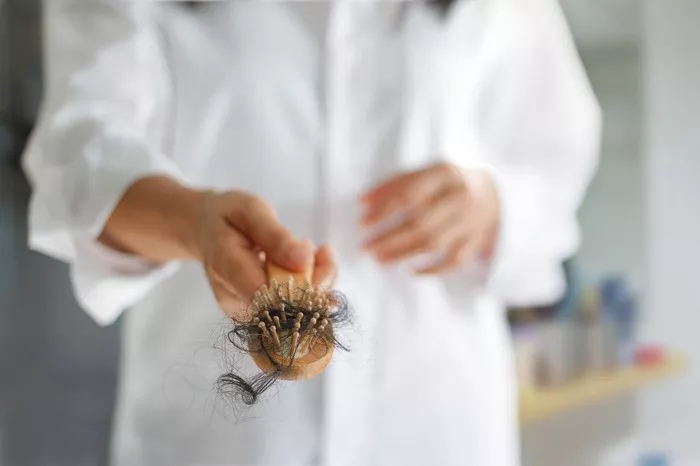In today’s fast-paced world, stress and anxiety have become pervasive. People often wonder whether the constant whirlwind of thoughts in their minds can contribute to hair loss. In this article, we will explore the potential link between overthinking and hair loss, backed by scientific research and expert insights. Let’s delve into this intriguing topic and understand the impact of overthinking on your locks.
1. The Overthinking and Hair Loss Connection
It’s essential to address the primary question: Does thinking too much lead to hair loss? While there isn’t a direct cause-and-effect relationship, there are connections worth exploring. Overthinking can lead to chronic stress, which is known to be a significant contributor to hair loss. Let’s break it down:
1.1 Chronic Stress and Hair Loss
Stress is a well-established factor in hair loss. When you’re stressed, your body releases cortisol, the infamous “stress hormone.” Elevated cortisol levels can disrupt the normal hair growth cycle, leading to premature hair shedding and even a condition known as telogen effluvium. Research suggests that persistent stress is indeed linked to hair loss, so it’s crucial to manage your stress levels.
1.2 Impact on Hair Follicles
Excessive worrying and overthinking can affect your hair follicles indirectly. Stress-induced changes in your body, like poor nutrition, sleep disturbances, and hormonal imbalances, can have a detrimental effect on your hair. Ensuring that you maintain a balanced lifestyle can help mitigate these potential problems.
See Also: How Do I Know If Hair Loss Is From Stress: A Full Guide
2. Stress Management Techniques
Now that we’ve established the potential connection between overthinking and hair loss, it’s time to explore ways to mitigate this risk. Here are some stress management techniques that can help you maintain a healthy head of hair:
2.1 Meditation and Mindfulness
Meditation and mindfulness practices are powerful tools for reducing stress and promoting overall well-being. Regular meditation can help you break free from the cycle of overthinking, allowing your mind and body to relax. This, in turn, can positively impact the health of your hair.
2.2 Exercise Regularly
Physical activity has been proven to reduce stress levels. Engaging in regular exercise releases endorphins, the body’s natural mood enhancers. Furthermore, exercise promotes healthy blood circulation, which is essential for nourishing hair follicles.
2.3 Adequate Sleep
Quality sleep is crucial for stress management and hair health. Ensure you get 7-9 hours of uninterrupted sleep per night to allow your body to repair and regenerate, including your hair follicles.
2.4 Balanced Diet
A nutritious diet is essential for maintaining strong and healthy hair. Make sure you consume a variety of vitamins, minerals, and proteins, including biotin and keratin, which are vital for hair growth.
3. Seeking Professional Help
If you’re already experiencing hair loss or are concerned about it, it’s wise to consult with a healthcare professional or a dermatologist. They can assess your specific situation, offer tailored advice, and recommend appropriate treatments, such as topical solutions, medications, or hair transplantation if necessary.
4. Avoid Overthinking Triggers
In your quest to prevent hair loss, it’s essential to identify and avoid triggers that lead to overthinking. These can vary from person to person, but common sources of overthinking include work-related stress, relationship issues, and financial worries. Addressing these issues through communication, counseling, or seeking professional help can reduce the emotional strain that contributes to hair loss.
5. Stay Informed and Take Action
Understanding the potential connection between overthinking and hair loss is the first step. By staying informed about the latest research and seeking expert advice, you can take proactive steps to safeguard your hair. Remember that genetics, age, and other factors play a role in hair loss as well, so a holistic approach is essential.
In conclusion
While overthinking alone may not directly cause hair loss, it can exacerbate chronic stress, which is a known contributor to this issue. By adopting stress management techniques, maintaining a healthy lifestyle, and seeking professional guidance when needed, you can mitigate the impact of overthinking on your hair. Keep in mind that taking care of your emotional well-being is not only beneficial for your hair but also for your overall health and quality of life.


